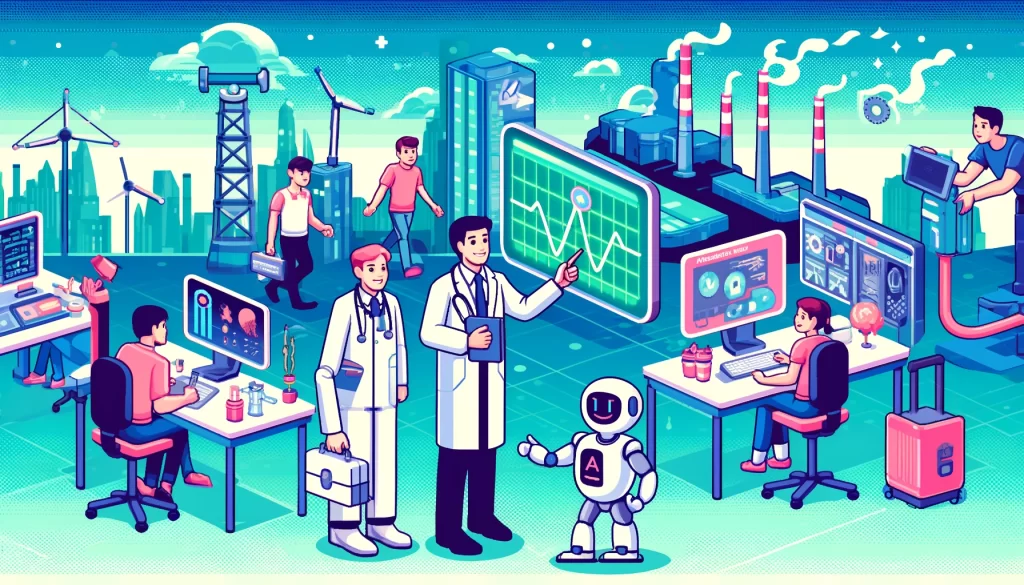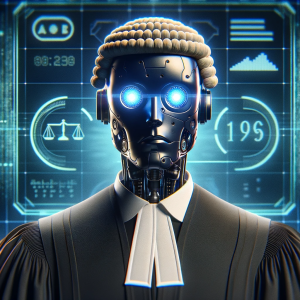
The World of Artificial Intelligence: A Beginner’s Guide
Imagine a world where machines can learn, reason, and make decisions just like humans. This is not a scene from a science fiction movie but a reality enabled by Artificial Intelligence (AI). From recommending your next favorite show to identifying potential health risks, AI is everywhere, reshaping the way we live and work. But what exactly is this [Scientific Concept] that seems to be taking over our lives, and how does it work? Let’s demystify AI, offering a window into the technology that’s transforming our world.
Storytelling and Explanation
AI is like a digital apprentice capable of mastering complex tasks. But instead of an apprenticeship, it learns through data. Think of it like this: If you wanted to teach someone to recognize different dog breeds, you’d show them hundreds of photos, point out the differences, and eventually, they’d be able to identify breeds on their own. Similarly, AI systems rely on vast amounts of data to “learn.”
The Role of Algorithms
At the heart of AI are algorithms—sets of instructions that guide computers in solving problems. When these algorithms are fed enormous datasets, they identify patterns, recognize trends, and make predictions. In fact, AI can quickly analyze more data than any human could in a lifetime, giving it an unparalleled ability to discover hidden connections.
Types of AI
- Narrow AI: This is the AI that most of us encounter daily. It specializes in one task, like recognizing speech, suggesting songs, or sorting through your inbox. Your voice assistant, email spam filter, and online recommendations are all examples.
- General AI: Still in the realm of research, this form aims to replicate human cognitive abilities. A general AI could understand multiple tasks, learn new ones, and switch between them effortlessly.
Methodology
Machine learning (ML), a subset of AI, is the magic that helps machines get smarter over time. By analyzing data, ML algorithms adjust their behavior to improve accuracy. Imagine giving a computer thousands of cat pictures and training it to differentiate cats from dogs. Initially, it makes mistakes, but as more data is fed into the system, it learns to distinguish more accurately.
Deep learning, an advanced form of machine learning, mimics the structure of the human brain. With layers of artificial “neurons,” deep learning networks can analyze data at multiple levels, giving them the ability to recognize faces, understand speech, and even play chess at a superhuman level.
Significance of the Research
The rise of AI isn’t just a tech trend but a paradigm shift impacting our daily lives and the global economy. Here’s how:
- Healthcare: AI-powered diagnostic tools can analyze medical images, potentially catching diseases like cancer earlier than a human could. Virtual health assistants can monitor patients’ symptoms and provide guidance.
- Education: Personalized learning algorithms help students study at their own pace, and AI tutors assist teachers in delivering customized content.
- Environment: AI helps scientists predict natural disasters, optimize energy consumption, and even monitor wildlife populations.
- Business and Economy: From customer service chatbots to predictive maintenance in manufacturing, AI streamlines operations, reduces costs, and opens new business avenues.
Jargon Simplification
- Neural Networks: A simplified computer model inspired by the human brain that processes data in layers to recognize patterns and solve complex problems.
- Supervised Learning: Training an algorithm using labeled data, where the expected outcome is known, like teaching a child to recognize fruits by showing labeled pictures.
- Unsupervised Learning: When an AI system is given data without labels, it explores patterns on its own, much like discovering shapes in the clouds.
Accessibility and Engagement
To truly engage with AI’s impact, consider the following:
- In Your Life: How has AI already improved your life? Do you rely on a virtual assistant or enjoy better movie recommendations?
- Concerns: Are you worried about the pace of technological change, or do you believe AI will lead to new opportunities?
- Further Reading: To dive deeper, check out related articles on our website about the ethical implications of AI or how it’s shaping the future of jobs.
Conclusion
Artificial Intelligence is a transformative force, constantly evolving and integrating into all facets of our lives. From healthcare to entertainment, AI’s applications are vast and impactful. While the road ahead may have challenges and unknowns, understanding AI’s potential—and limitations—is essential. So, let’s continue to explore, ask questions, and shape the future of this remarkable [Scientific Concept] together.
Unlock the Secrets of Science
Get ready to unlock the secrets of science with ‘This Week in Science’! Our newsletter, designed specifically for educators and science aficionados, delivers a weekly digest of revolutionary research, innovative discoveries, and motivational tales from the scientific frontier. Subscribing is your key to a treasure trove of insights that can revolutionize your approach to teaching and learning science. Sign up today at no cost and start a journey that deepens your understanding and passion for science.
About the Author
Jon Scaccia, with a Ph.D. in clinical-community psychology and a research fellowship at the US Department of Health and Human Services with expertise in public health systems and quality programs. He specializes in implementing innovative, data-informed strategies to enhance community health and development. Jon helped develop the R=MC² readiness model, which aids organizations in effectively navigating change.



